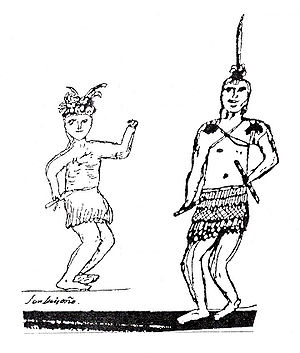
A month has passed, and I had time to digest all I have leaned about Uncle Henry, and California Indian culture. Our California Literature class has been reading a book by Greg Sarris, a Pomo tribal leader, called "Grand Avenue". A persistent theme in the book are the connections some of the elders feel to their world - animals, plants and elements. Uncle Henry's stories also contain accounts of meetings with the mountain lion, coyote and crow, all within the framework of the high-desert country around the Palomar Mountain foothills. David Ross, and editor of Valley Roadrunner newspaper in Valley Center, California, generously agreed to let me post the 5-part interview with Uncle Henry in this blog. This link contains the entire story.
I am wrapping this post up with the picture of the Yellow-Footed Mountain frog, native to Palomar Mountain and Southern California. It is on a verge of being extinct, thanks to the encroachment of "civilization". Like sunlight in the water, the pristine environment, once venerated by its guardians, will soon be gone. Uncle Henry, and other elders, along with this frog, and our source of life - California water - are disappearing as well. Uncle Henry himself said that old ways and knowledge of the land are dying, and younger generation just does not care. Few young people, such as neighboring Pala Bird Singers, would disagree. Pala Tribe's younger generation is very proud of their language and traditions, passed to them by the elders.
"Have a very good day". This is what Uncle Henry said to everyone he met. I hope it is not too late, Uncle Henry. See you on the other side.


![Reblog this post [with Zemanta]](http://img.zemanta.com/reblog_e.png?x-id=d833d675-3010-4afc-bfd5-4300012fac1d)

![Reblog this post [with Zemanta]](http://img.zemanta.com/reblog_e.png?x-id=4c7b8aef-f09c-4164-80e2-c58d298c8a27)

![Reblog this post [with Zemanta]](http://img.zemanta.com/reblog_e.png?x-id=2486165d-8cd3-4f1d-beaa-026b94a124e2)

![Reblog this post [with Zemanta]](http://img.zemanta.com/reblog_e.png?x-id=49b95140-3388-46a7-abc7-4d39df273553)